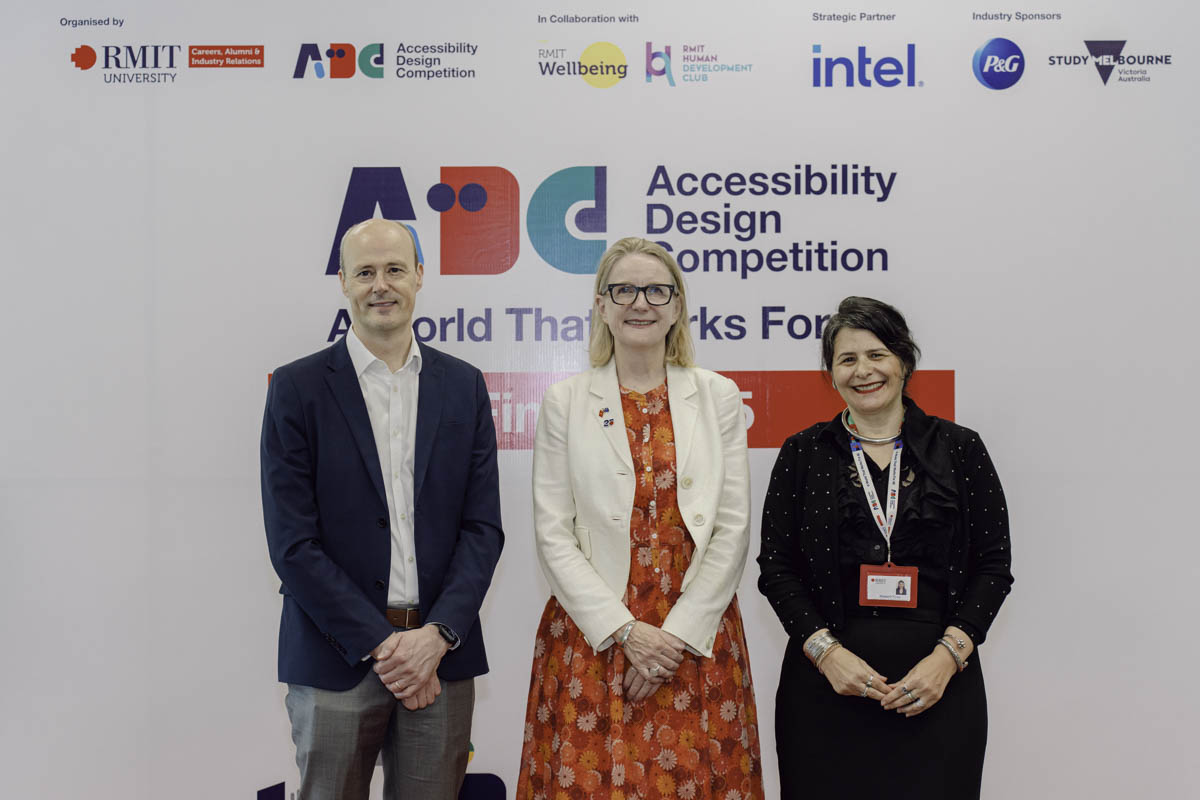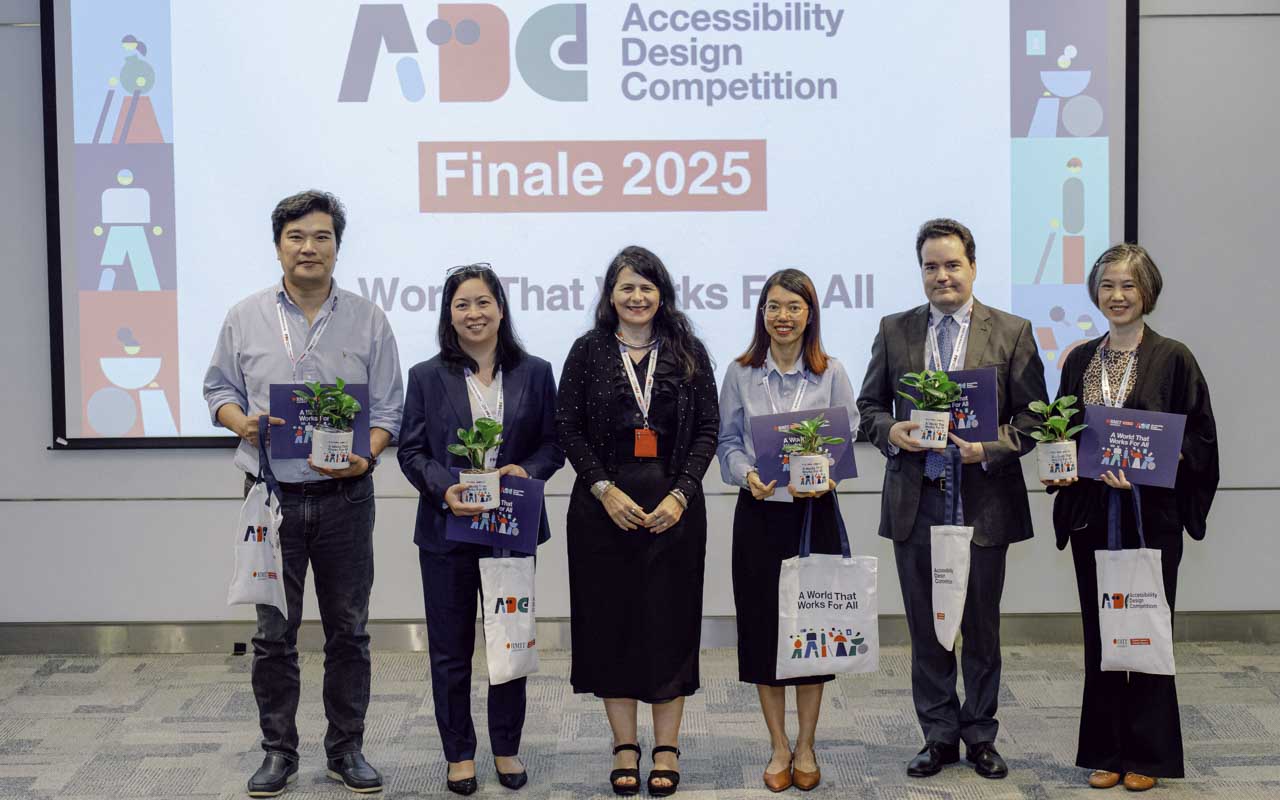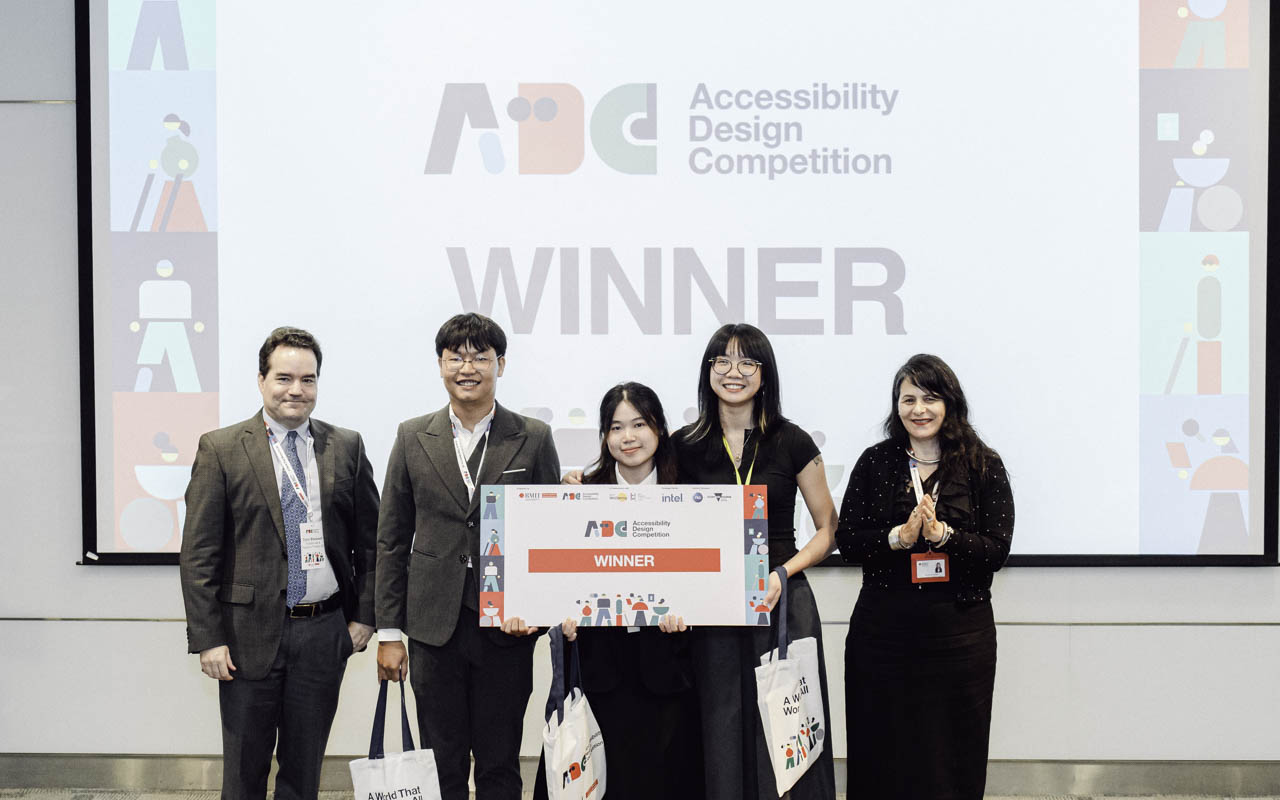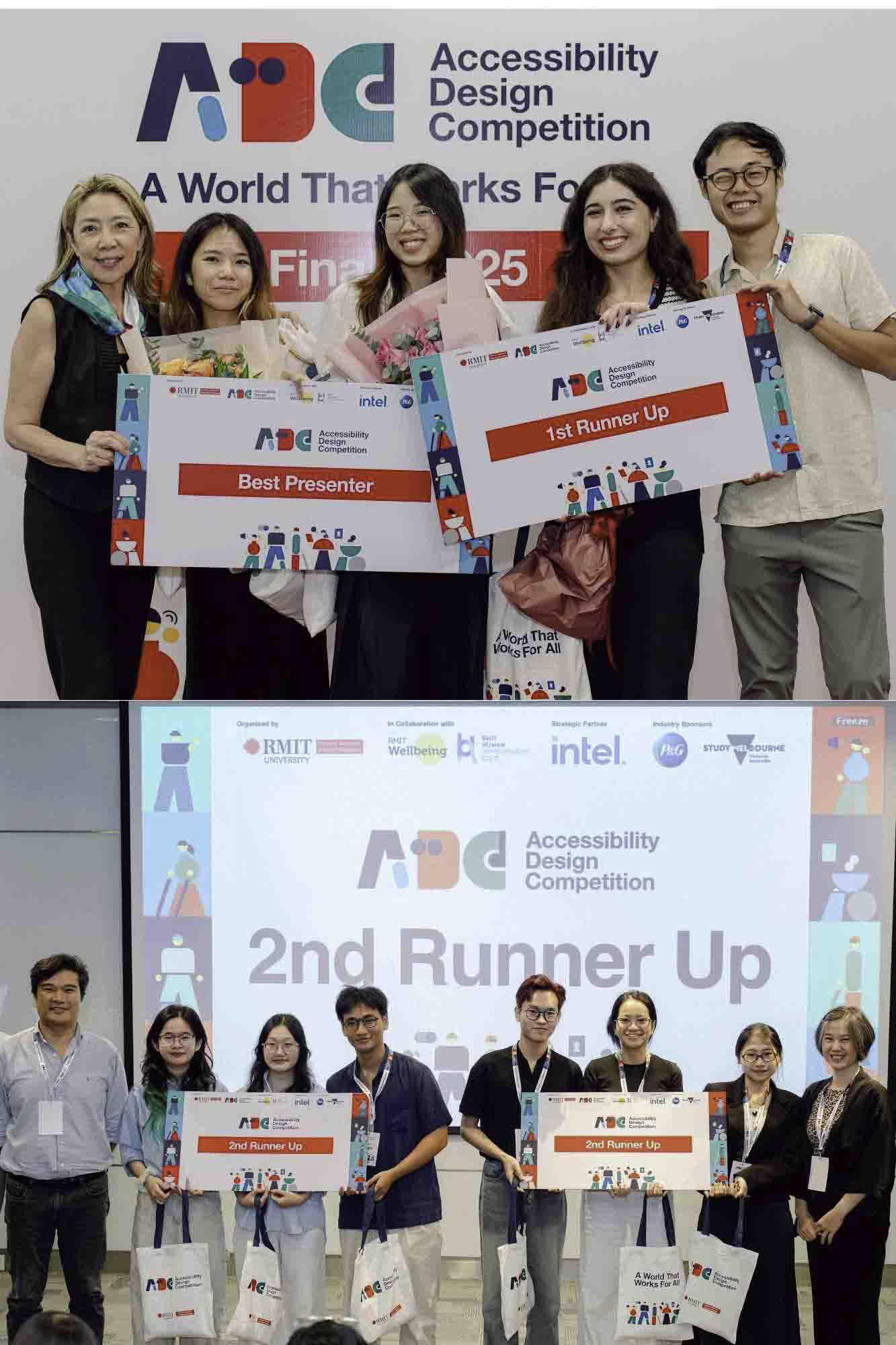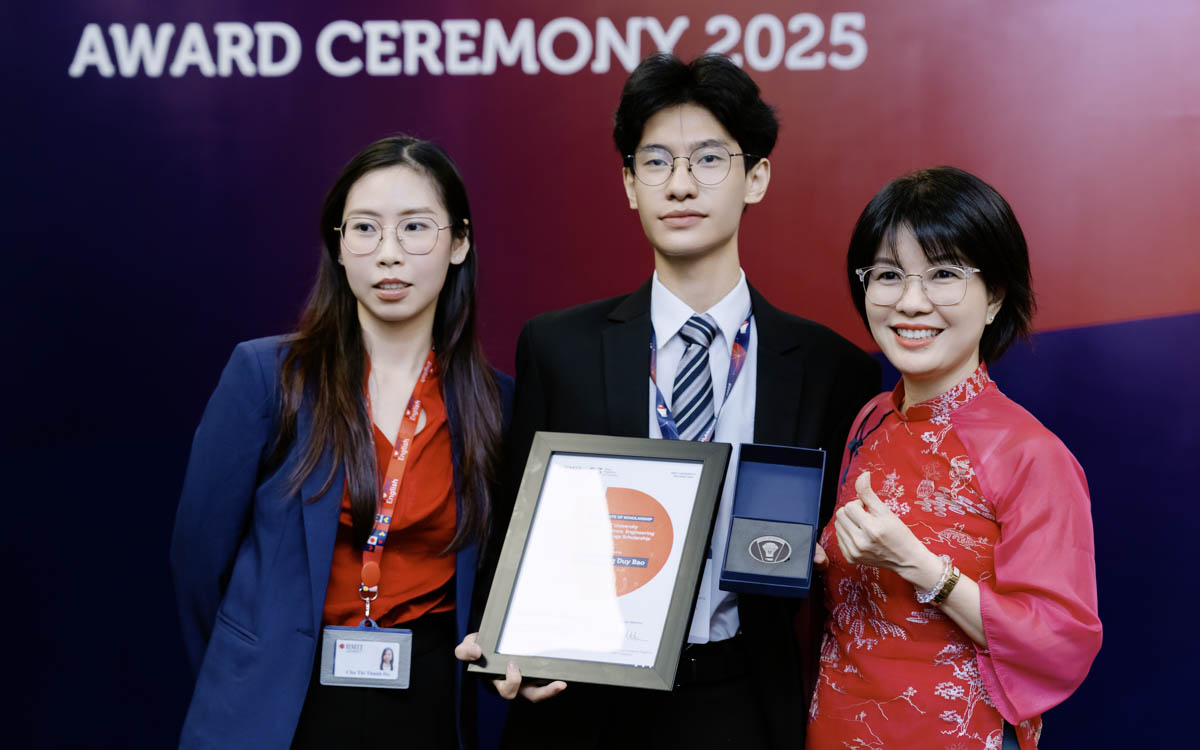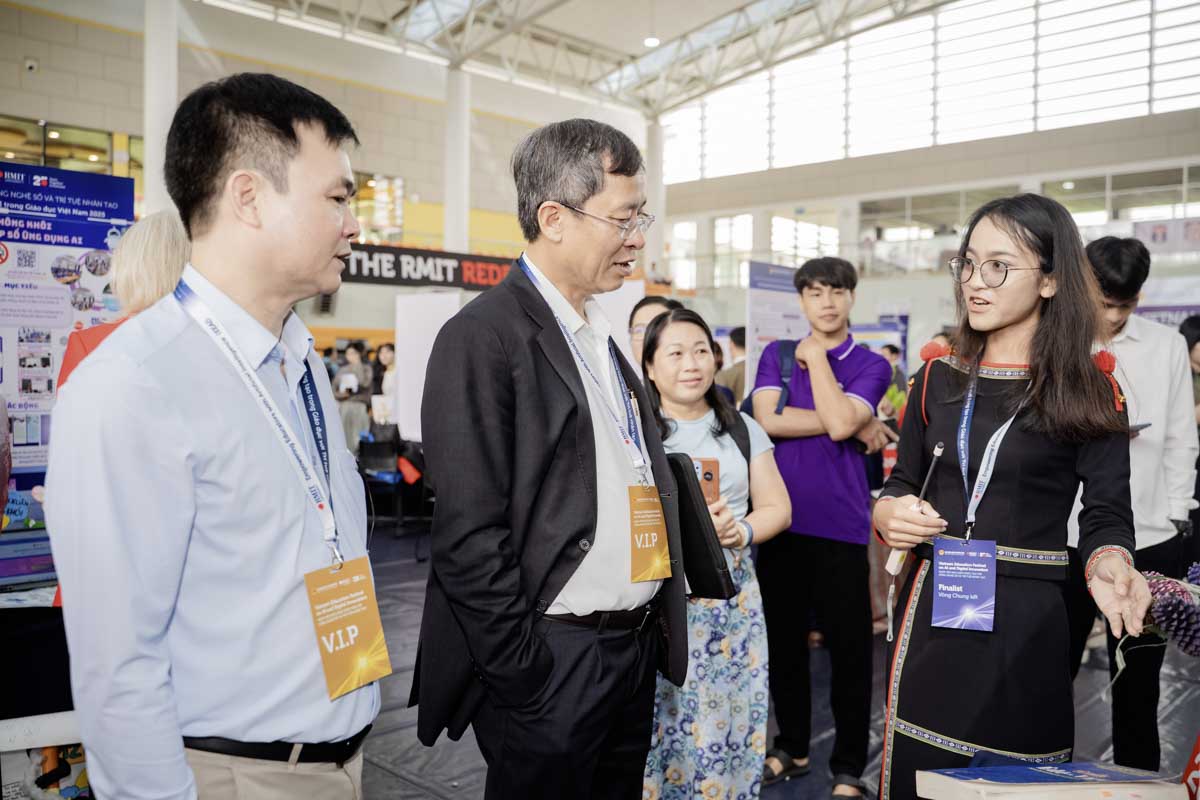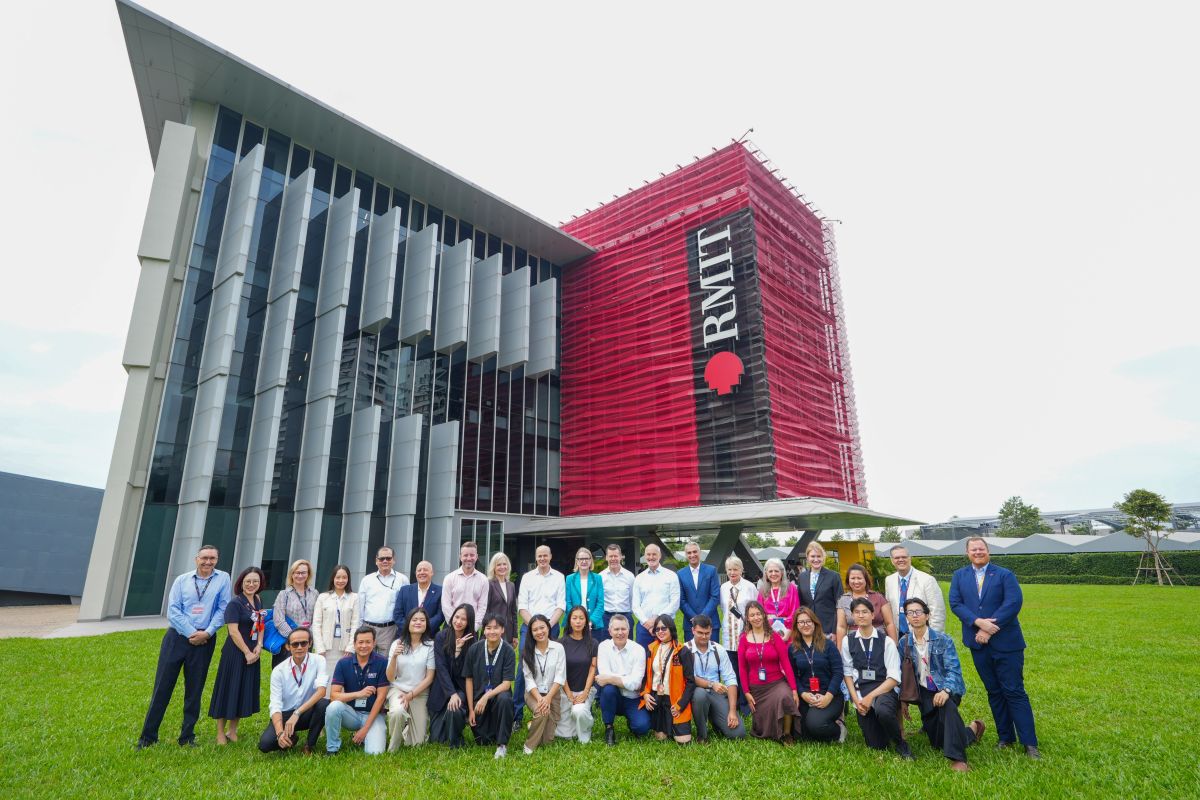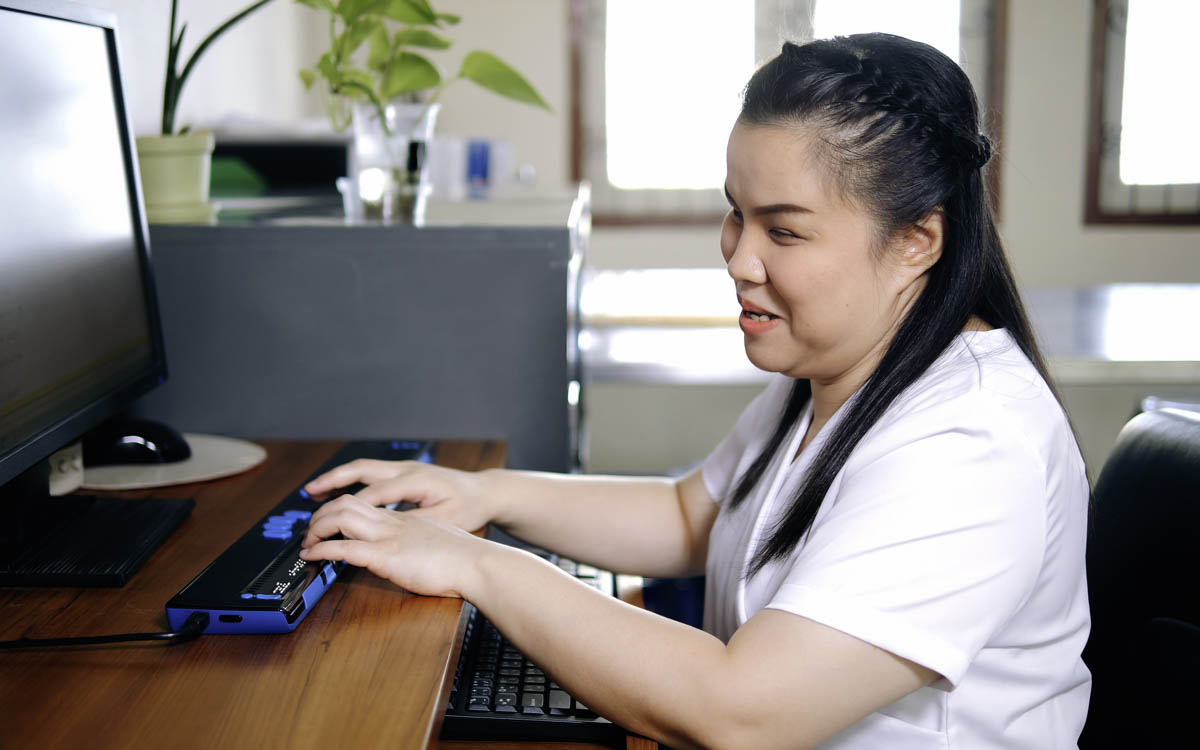RMIT Vietnam announces record 2026 scholarships worth more than 200 billion VND
RMIT Vietnam continues long-term commitment to talent development with its record 2026 Scholarship program worth more than 200 billion VND.
Vietnam Education Festival honours AI innovations in education
Co-organised by the Ministry of Education and Training (MOET) and RMIT Vietnam, the Vietnam Education Festival on AI and Digital Innovation 2025 created a nationwide platform for teachers to connect, learn and share best practice.
RMIT celebrates ongoing relationship with Vietnam
RMIT University has reaffirmed its commitment to invest in expanding its presence in Vietnam during the 25th anniversary of its transnational education relationship with the country.
Inclusive AI governance: Building Vietnam’s digital future for all
AI should not only drive efficiency and innovation but also empower individuals who have historically faced barriers, said Dr Abdul Rohman from RMIT Vietnam’s School of Communication & Design.

